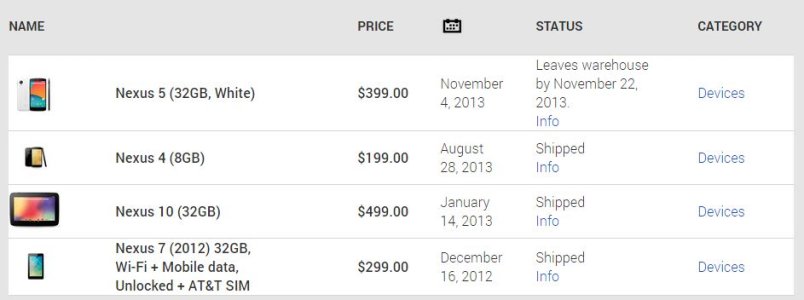All of those things aren't objectively "worse." They're just worse
for you. They're not worse for anyone and everyone. I have a Nexus 10. I've used it for a year, and I like it, but I leapt on the Nexus 9. Because:
- 16:10 doesn't make for a very comfortable-to-hold tablet. It's bulky in ways that the boyfriend's 4:3 iPad isn't.
- Reading is less than ideal. I can get a two page spread, sort of, but reading in portrait is - again - bulky and hard to hold.
- 16:10 is nice for videos, but I do more than watch movies on my N10. Lots more. I'll live with slightly larger letterbox bars just as I live with letterbox bars on most videos, now.
- It's thinner and lighter than my N10. It'll likely get even better battery life.
- The pixel dimensions are irrelevant to me; I can't see individual pixels on my Mac, my phone or my N10; I won't see individual pixels on my N9 when it gets here - good enough is certainly good enough, here.
- I've never once used the HDMI port on my N10. It's vastly simpler to stream anything to the television in the living room over DLNA. On the television in our bedroom, we've got a chromecast. Wired ports are useless for me, here.
You're welcome to think it's not a good buy for you, but to argue that it's "worse" because it lacks an HDMI port I've never even needed, or the screen size is "worse" in ways most people never actually care about in use is silly. That it lacks expandable storage is neither here, nor there; so did my N10. That's not "worse" - it's simply Google's take that Nexus devices ought to have fixed storage. Maybe they feel like that's easier for folks to understand. Maybe they have some other reason; either way, Nexus devices typically don't have expandable storage, and none of the Nexus tablets have.
If you want something other than an N9, hang on. Google has said all over the place that they want Nexus devices to be reference devices for OEM's to improve upon.


